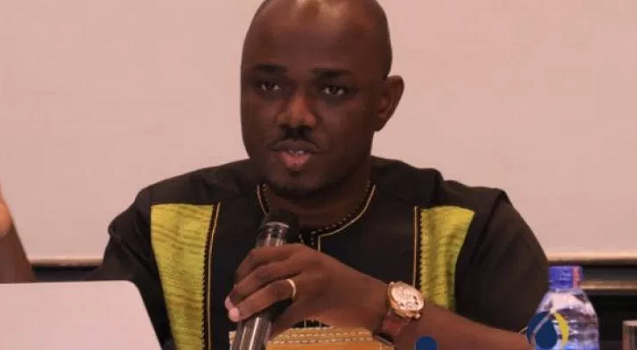
GNPC erred in financing maritime dispute — ACEP
Energy policy think-tank, African Centre for Energy Policy (ACEP), has observed that the Ghana National Petroleum Corporation (GNPC) breached the rules of corporate governance by accepting to finance the country’s case against neighbouring Cote d’Ivoire at the International Tribunal for the Law of the Sea (ITLOS).
Given that the state and not the corporation took Cote d’Ivoire to the tribunal over the boundary dispute, the centre said central government, not the national oil company (NOC), should have borne the expenses related to the arbitration.
Read Also: Funding of Free SHS. . .Mahama wants broader discussion
As a result, its Executive Director, Mr Ben Boakye, has requested that the government refund all monies expended by the GNPC on the four-year case to “help enhance the latter’s balance sheet”.
He was reacting to an earlier revelation by the Graphic Business that the GNPC had expended some GH¢32.1 million in three years on the case, which ended in September this year with a victory for Ghana.
“Remember that Ghana did not go to court just because of oil; we went to court because of our territorial border, which is affected by many other activities.
“So, why did the Ghana Maritime Authority (GMA) not fund the operations?” he asked in a November 9 interview.
“But we simplify it to make it look as if we were just in court because of oil. Also, if you have a dispute and you go to court, you do not allow one agency that is affected, which is the petroleum company, to finance the entire proceeds,” he said.
Minority disagrees
While admitting that the corporation’s financing of the process could have contributed in securing a victory for Ghana, the ACEP’s acting executive director said the choice of a source of funding could equally reduce the impact of the successes chalked up.
To help forestall a repeat and further misapplication of GNPC’s allocations, he said, the government should refund the money to the corporation to be used for its traditional role.
“Going forward, I think the government should audit and ascertain the full figure and refund the money back to the GNPC,” he said.
Read Also: Asokwa Police brutalise Kantanga Hall students (VIDEO)
However, the Minority Spokesperson on the Mines and Energy Committee of Parliament, Mr Adams Muta, said in a separate interview that the approach was not wrong, given that it was approved by Parliament.
“GNPC is a major stakeholder in the case and it is owned 100 per cent by the government. So they (GNPC) were asked to make a budget for the ITLOS case as part of their programme of activities, which they did and brought for approval,” he said.
He explained that expenses incurred under the arbitration at ITLOS “was not affecting their operations” since it was budgeted for outside their carried and participation interest (CAPI).
On why the government chose GNPC over the Ministries of Finance and Energy to fund the case, Mr Mutawakilu, who is the NDC MP for the Damongo Constituency, said it was to help protect the corporation’s interest in the matter, utilise the additional allocations given for that purpose and “most importantly to avoid the bureaucracies at the ministries”.
“We looked at all these issues and said they will be the best players in financing the arbitration for us.
“So in approving their budget, we approved this component as well. It is true that we could have taken it to the Ministry of Finance but we decided to let GNPC lead because of some of these challenges,” he said.
Read Also: More than 200 vehicles stranded at Yeji as a result of closure of Yapei, Buipe bridges
On whether or not the corporation should request a refund, the MP said it was not necessary, given that the government had allocated such funds for the expenditure related to the arbitration.
“Once it was a budget approval and an expenditure item that Parliament has approved, GNPC cannot go back and request a refund. However, if we had approved without arbitration and in the course of the year it came up and GNPC was asked to fund it, then they can request a refund,” he explained.
Background
The government, in September 2014, dragged Cote d’Ivoire to ITLOS, the judiciary arm of the United Nations (UN) Convention on the Law of the Sea, over claims by the latter that parts of the oil and gas-rich Cape Three Points, off the shores of the Western Region, belonged to it.
The decision followed 10 rounds of failed negotiations between the two countries.
In September this year, however, the special chamber that presided over the case ruled that Ghana had not breached any international regulations in its exploitation and production of petroleum products in its territorial waters.
This, therefore, reinforced the country’s ownership of the disputed area.
Ghana’s team at the ITLOS reportedly comprised over 20 local and international experts drawn from all the relevant sectors.
The disputed area covered portions of the Jubilee Field, the Tweneboa-Enyenra-Ntomme (TEN) project, the Owo discoveries, West Tano-1X find and the Deep Water Tano block, all found in the West Coast of Ghana’s territorial waters.